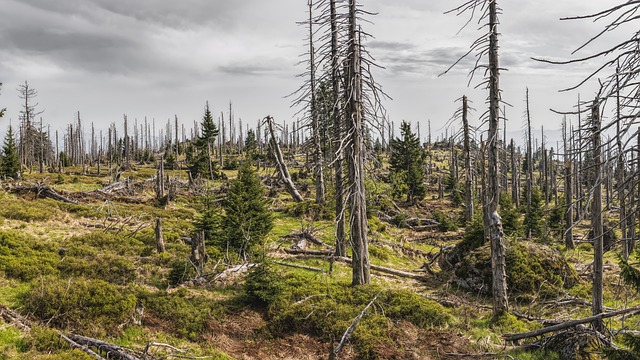Deforestation stands as one of the most pressing challenges of our time, a path of destruction that not only devastates our forests but also has dire repercussions for the entire planet. The act of cutting down trees for timber, agriculture, or urban development strips the Earth of vital ecosystems and biodiversity. Moreover, this relentless destruction significantly contributes to climate change, creating a cycle that threatens our environment and, ultimately, our very existence.
As trees are felled, the vast carbon storage capacity they hold is released back into the atmosphere. Forests are often referred to as the “lungs of the Earth,” absorbing carbon dioxide and producing oxygen. When trees are removed, not only do we lose this essential service, but the sudden uptick in greenhouse gases exacerbates global warming. The statistics are staggering: according to the Food and Agriculture Organization (FAO), around 10 million hectares of forest are lost each year, resulting in millions of tons of carbon emissions that fuel climate change.
This destruction doesn’t just impact the environment; it has immediate and long-term effects on wildlife, humans, and the delicate balance of ecosystems. Animals lose their habitats, leading to population declines and, in many cases, extinction. Iconic species such as the orangutan and the jaguar struggle to survive as their homes vanish under chainsaws and bulldozers. The intricate web of life that once thrived in these forests is unraveling, and with it, our planet’s resilience to climate threats.
Human communities are equally affected by deforestation. Indigenous populations, whose lives and cultures are intertwined with their surrounding forests, face the loss of their homes and livelihoods. Deforestation leads to soil erosion, which can diminish agricultural productivity; consequently, food security is threatened. Clean water sources, often protected by forest ecosystems, become contaminated or entirely lost, affecting not just the wildlife but the millions of people who rely on these natural resources for survival.
Moreover, climate change induced by deforestation leads to extreme weather events—more intense storms, prolonged droughts, and rising sea levels—which disproportionately affect the most vulnerable communities. The effects of this destruction ripple outwards, showcasing an interconnected world where the loss of trees in one region can lead to severe consequences thousands of miles away.
It is clear that the fight against deforestation is not just about preserving trees; it is about safeguarding our climate and environment for future generations. We must all take responsibility, from the individual to the corporate level, to make sustainable choices that protect our forests. Reforestation initiatives, responsible consumption, and stronger legislation can help mitigate the effects of deforestation and lead us toward a more sustainable future.
We must uncover the devastation of deforestation and raise our voices against the destruction it causes. The fight for our forests is a fight for our planet’s health and our collective future. It’s time to act—before it’s too late.




